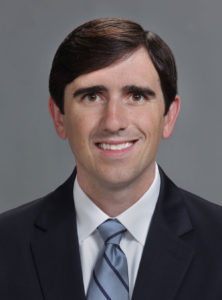MCL Reconstruction Surgeon

Are you an athlete who participates in contact sports? If so, you may be at risk of sustaining an MCL injury. The MCL can sustain an injury during certain twisting movements, direct contact to the outside of the knee, external rotation or combined force impacts when knee flexion is present. MCL reconstruction surgeon, Dr. Robert Boykin provides diagnosis and both surgical and nonsurgical treatment options for patients in Asheville who have developed an MCL injury. Contact Dr. Boykin’s team today!
MCL Knee Injury Overview
While it is more common to hear about anterior cruciate ligament (ACL) injuries among athletes, medial collateral ligament (MCL) tears account for approximately 24 percent of all knee injuries. The MCL is located on the inner aspect of the knee and is critical to the stability of the joint. It is one of the collateral ligaments and helps to control side to side movement, function, and motion of the knee.
During sports or other types of traumatic incidents such as a fall, the MCL can become damaged. This is usually seen when there is contact to the outside of the knee or excessive rotation and may be associated with other ligament injuries. In many cases, a tear of the MCL can be treated without surgery, allowing the ligament to heal on its own. In certain injuries when there is a complete tear of the MCL associated with instability of other ligament injuries, surgery is the preferred treatment to restore function and stability to the knee. A decision for which type of treatment is the best in a particular situation depends on the history, physical examination, X-rays, MRI, and patient goals. Knee surgeon Dr. Boykin specializes in the treatment of MCL tears for patients in Asheville, Arden, Fletcher and surrounding communities.
MCL Reconstruction Overview
If Dr. Boykin feels surgery is necessary, he may discuss MCL augmentation or reconstruction with the patient. These are surgical procedures involving the use of a graft to reconstruct the torn MCL. An augmentation procedure involves repairing the torn MCL with sutures and using one of the patient’s hamstring tendons to reinforce the repair. In cases where the damage to the MCL is more severe or longstanding, a full reconstruction is needed. This can be accomplished with a hamstring graft from the patient or a donated graft. The graft is placed in the exact location to replace the torn structures with new tissue at the natural attachment points. The graft is secured with specialized screws and/or anchors placed into the bone that contain strong sutures. The outcomes of MCL augmentation and reconstruction have been shown to be very good at restoring stability and function of the knee. Dr. Boykin prefers to repair or reconstruct all damaged structures during the same surgery if this is possible and safe for the patent.
Recovery Following MCL Surgery
A thorough physical therapy and rehabilitation program will be prescribed for the patient after surgery. This is a critical part of the recovery process and typically therapy will begin immediately. Progression in terms of how the patient moves through each level and how far he/she goes in terms of range of motion, weight bearing, strengthening, etc. will depend on the nature of the injury, surgery, and health of the patient. The usual program includes crutches with protected weight bearing in a brace for 6 weeks. Patients typically return to jogging at 4 months and sports at 5-6 months, depending on the severity of the initial injury.
For additional information on MCL reconstruction surgery of the knee, or to learn more about MCL knee injuries or other knee ligament injuries, please contact the office of Dr. Robert Boykin, orthopedic knee surgeon in Asheville, Arden, Fletcher and surrounding North Carolina communities.
